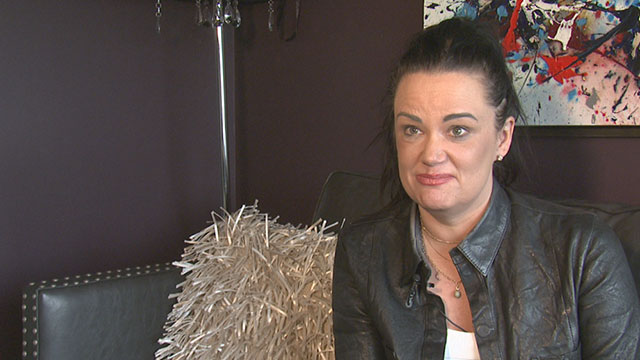Kathleen Martens and Brittany Hobson
APTN News
More women agreed Friday a young sexual assault complainant was not only treated like a criminal but her constitutional rights were violated in an RCMP interrogation video.
“My heart goes out to this person,” said Elba Bendo, director of law reform for West Coast Women’s Legal Education and Action Fund (LEAF).
“People who are doing anti-violence work hear about this every single day.”
Bendo was responding to the way a Mountie in Kelowna, B.C., questioned a 17-year-old, Indigenous girl after she reported a sexual assault.
The teen was part of the child welfare system at the time.
Part of the video – filmed in 2012 – was obtained by APTN Investigates and broadcast this week to widespread condemnation.
A former Mountie, victims’ advocates and federal politicians all denounced the officer’s tone and questions, including asking whether she was “at all turned on?”
Rona Ambrose, the former interim leader of the federal Conservative party, said the exchange reminded her of the ‘knees-together’ judge, Robin Camp.
“He made her feel like it was her fault,” Ambrose said of the Mountie. “This is unacceptable.
“It took courage for her to come forward.”
(Former Conservative cabinet minister and interim leader Rona Ambrose)
Ambrose recently proposed a private member’s bill mandating judges receive mandatory sexual assault awareness training after Camp, a provincial court judge in Calgary, asked a sexual assault complainant in 2014 why she couldn’t keep her knees together.
He acquitted the male suspect after finding his story more credible, questioned the complainant’s morals and said her attempts to fight off an attack were weak.
Ambrose said myths and stigma around sexual violence need to be dissolved so victims can stop being “discouraged, dismissed and disrespected.”
APTN News made another portion of the 2 ½ hour video public Friday.
Here is that segment:
Girl: “Well, it depends if he had like a knife or something, I’d probably just listen to what he had to say.”
RCMP: Okay, that’s fair. This (NAME REMOVED) fellow didn’t have a knife.
Girl: “But, we were in his house, he had anything he wanted.”
RCMP: “And you also knew how to get up and run out of the house, right?
Girl: “Yeah.”
RCMP: “I mean, he’s taking your clothes off. How much of a fight did you put up for him not to take your clothes off?”
Girl: “But, I don’t remember him taking my clothes off.”
RCMP: “But, you told me- like I’m reading in your statement here where it says he took your pants and shirt off and your phone fell out of your pocket when your shirt came off.”
Girl: “I remember that, but I don’t- like it’s hard to explain. Like I didn’t think. There’s a fight or flight response.”
Read More:
‘It’s bias. It’s absolute bias’: Former RCMP trainer says interrogation video is ’embarrassing’
‘Shocked and horrified’: Politicians respond to RCMP interrogation video
Bendo feels the power dynamic between the older male officer and younger female complainant further traumatizes the girl.
“It brings me back to so many of the stories that we heard when we did our report on dismantling the barriers to reporting sexual assault,” Bendo said.
(Glori Meldrum, the founder and chair of Little Warriors.)
Bendo said laws that appear progressive on paper are ineffective when police stick to old-school thinking.
“They’re so deeply offensive but every one of the questions this police officer asked is outside of the legal test of consent,” she said.
“…Our laws have for some time now said refusing consent does not include fighting back – that you don’t need evidence of fighting back to prove that there was a lack of consent.”
Meanwhile, the founder and chair of Little Warriors, a national child abuse survivor charity, said the RCMP needs help.
Glori Meldrum offered – free of charge – to share her group’s online, trauma-informed, interviewing course with every police force in Canada.
“I’m hopeful that they’ll reach out and we can have a conversation and that they know it’s not an attack it’s an offer,” she said from Edmonton.
“That we just want to make sure when people are interrogated they’re treated the right way.”
@katmarte












